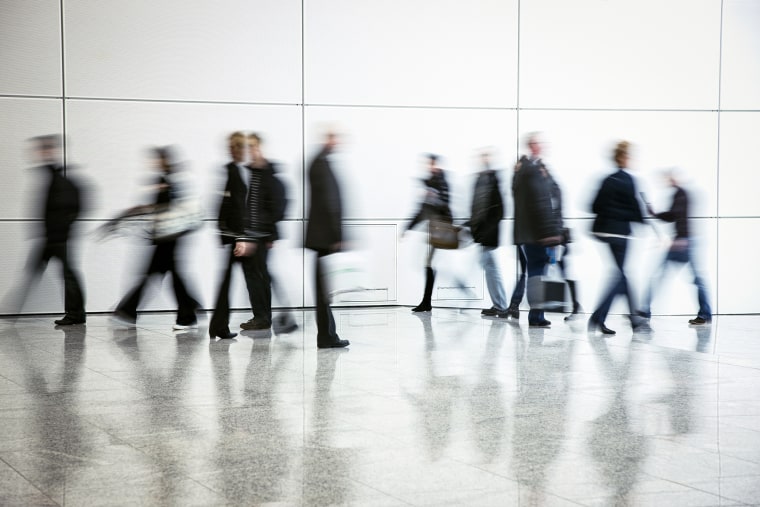When we talk about ageism in the workplace, we often view it as a bias that affects older workers.
But a new study, published in Harvard Business Review, shows that women face age bias whether they are young, middle aged or older. And that can impact not only women’s ability to rise the ranks, but the broader economy as well.
“A lot of these women are saying, ‘You know what? I want to work for myself, I want to start my own company because that seems like it’s the better way to go,’” said ForbesWomen editor Maggie McGrath on Friday’s “Morning Joe.”
Researchers spoke to 913 women leaders across four U.S. industries (higher education, faith-based non-profits, law and health care). The women were grouped into three categories: “young” (under 40), “middle aged” (between 40 and 60) and “older” (over 60).
Women under the age of 40 said they were called pet names like “kiddo,” and patted on the head. They also faced a “credibility deficit” where they were not taken seriously. They reported being mistaken for students, interns, trainees, secretaries, paralegals and more.
Meanwhile, women between the ages of 40 and 60 were told they have “too much family responsibility.” Some search committees reportedly declined to hire women in their 50s because of “menopause-related issues” that “could be challenging to manage.”
And women who were age 60 and beyond expressed feeling “discounted” and “irrelevant.” One physician told researchers that “while men become wells of wisdom as they age, older women are seen as outdated, harpy, strident,” one physician noted. “Our voices are discounted.”
“Morning Joe” co-host Mika Brzezinski noted that women in politics are often targeted for their age, including Hillary Clinton on the campaign trail and GOP presidential candidate Nikki Haley being told earlier this year that she was “past her prime,”
“Silence equates complicity,” said Huma Abedin, vice-chair of Forbes and Know Your Value’s 30/50 Summit. “…The reality is you gotta call it out. I think sexism and ageism in politics has gotten worse.”
“We’re going backwards,” said Brzezinski.
Researchers of the study said that in order to combat ageism in the workplace, employers should be trained on age-gendered bias, just like other forms of discrimination. They also noted gendered ageism often correlates with looks and appearance. “Lookism” should be included in diversity, equity and inclusion training to make sure its not being used as a hidden metric for hiring, promotion or performance evaluation.
Finally, researchers said employers must focus on employees’ skills and develop intergenerational, mixed-gender teams.
“You have to train workers on discrimination and bias of all kinds,” said McGrath. “We already train for gender bias, racial bias. We need to train people on age bias because you can’t address and fix that which you have not acknowledged.”
